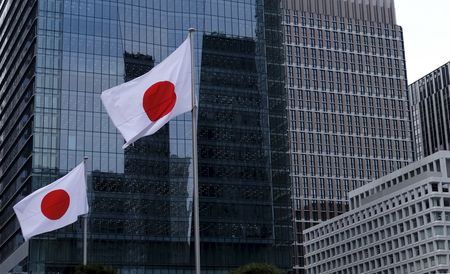By Makiko Yamazaki
TOKYO (Reuters) -Singapore-based hedge fund 3D Investment Partners got two of its nominees on the board of software developer Fuji Soft Inc on Sunday, in the latest proxy fight by activist investors seeking more independent oversight of Japanese firms.
Three battles in recent months have questioned how independent from management Japan’s outside board members really are after nearly a decade of governance reform has sharply increased the number of independent directors.
Governance experts say outside directors are only nominally independent if they have close ties to management or fail to give proper oversight.
3D, which owns more than 20% of Fuji Soft, has nominated four additional members for the company’s nine-member board at Sunday’s extraordinary general meeting (EGM), saying existing outside directors have failed to address years of inefficient capital allocation.
Fuji Soft has endorsed two of the fund’s candidates.
The Yokohama-based firm defended its current board, telling Reuters in a statement that the independence of its outside directors “has been ensured with no conflict of interests with shareholders. They have given objective opinions and have contributed to fostering active debate”.
3D this year sought an EGM at Toshiba Corp to restart a strategic review of the conglomerate to explore options including going private.
Hong Kong-based Oasis Management on Thursday asked Fujitec Co Ltd to hold an EGM to remove all six incumbent outside directors and appoint seven new ones nominated by the fund.
The elevator maker, just an hour before its June shareholders meeting, withdrew a proposal to re-elect its chief executive to the board following revelations of real estate transactions involving his family. The board then appointed him unelected chairman.
Oasis, which owns 16.5% of Fujitec, said the board had “decided to egregiously breach shareholders’ most basic right – the right to vote and hold directors accountable,” demonstrating a complete lack of independent counterbalancing power.
Fujitec declined to comment, saying the company has not yet confirmed the content of Oasis’s EGM request.
HOW INDEPENDENT?
The Tokyo Stock Exchange says 92% of the roughly 1,800 firms on its prime section define at least one-third of their directors as independent. But it is hard to gauge their independence from management beyond a set of written criteria.
Governance experts say having a committee to nominate directors would help ensure such independence, but only 3.9% of the top-tier companies have a statutory nomination committee, where a majority of its members must be outside directors.
Even such a committee may not ensure effective independence.
Tokyo-based Strategic Capital has sought an EGM at Japan Securities Finance Co (JSF) for an independent investigation into the securities finance provider’s long-held practice of nominating former Bank of Japan, Finance Ministry and Tokyo Stock Exchange officials to top management and director positions.
The practice of senior government officials landing post-retirement jobs in the private sector has long been criticized as a source of corruption in the Japanese bureaucracy.
JSF has a statutory nomination committee, but Strategic Capital said its inaction over the troubled practice shows the committee is dysfunctional.
The company has said the appointments have been made based on the people’s qualifications.
(Reporting by Makiko Yamazaki; Editing by William Mallard and Lincoln Feast.)

